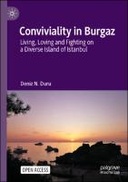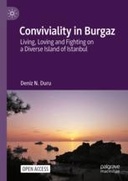Explore

This open access book tells stories of conviviality, solidarity, and everyday management of conflicts and tensions, by building on original, long-term ethnographic research (fourteen months in 2009-2010, followed by fieldwork trips until now) on Burgaz, an island home to more than twenty ethnic and religious groups from different socio-economic backgrounds. The island provides an excellent case study of post-Ottoman conviviality, as the homogenisation process during the nation-building stage of modern Turkey triggered migrations from the island, especially of non-Muslims, yet the island’s population retains elements of its Byzantine and Ottoman diversity. The book explores the islanders’ representation of diversity through ethnographic research, media analysis and interviews, and shifts the analytical framework of Post-Ottoman plurality from “coexistence/toleration” to that of conviviality. The author critically engages with the literature on multiculturalism and cosmopolitanism andconceptualises conviviality as both living together in diversity as shared ways of living as well as living with difference. The book further explores the relationship between conviviality, solidarity, coexistence/toleration, intoleration and nationalism. This is an open access book.
This book is included in DOAB.
Why read this book? Have your say.
You must be logged in to comment.
Links
DOI: 10.1007/978-3-031-52334-2web: https://link.springer.com/book/10.1007/978-3-031-52334-2
Editions



